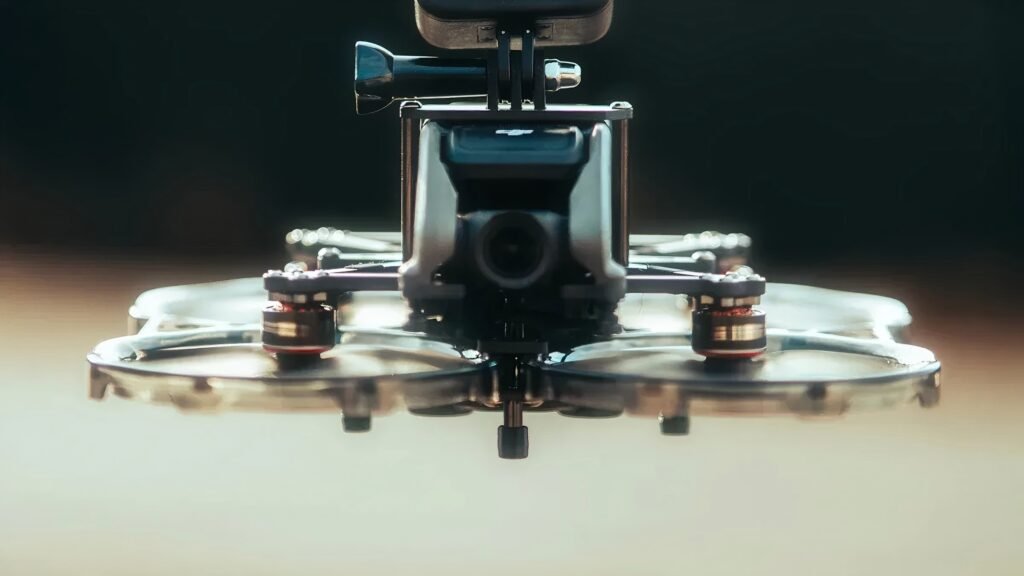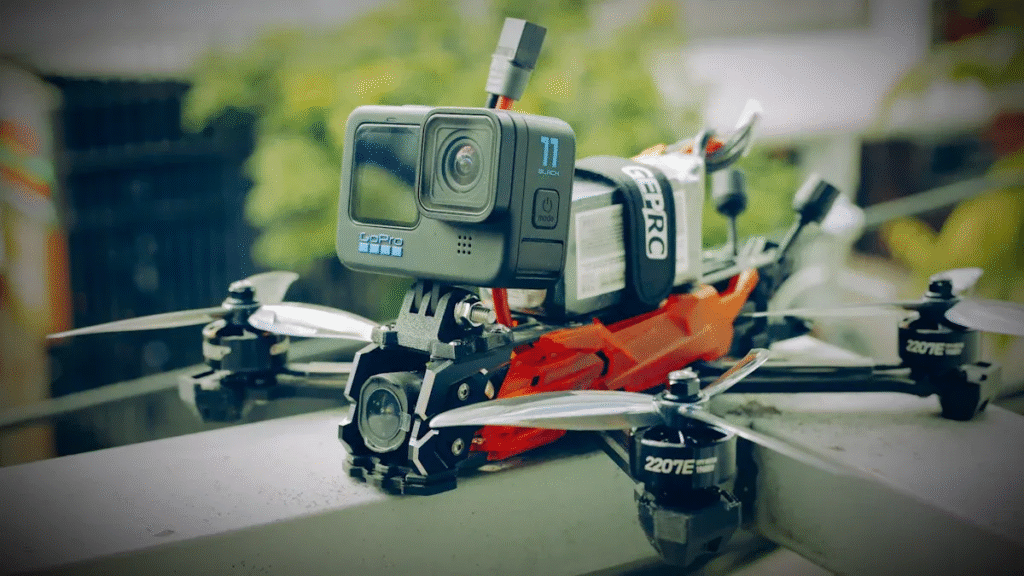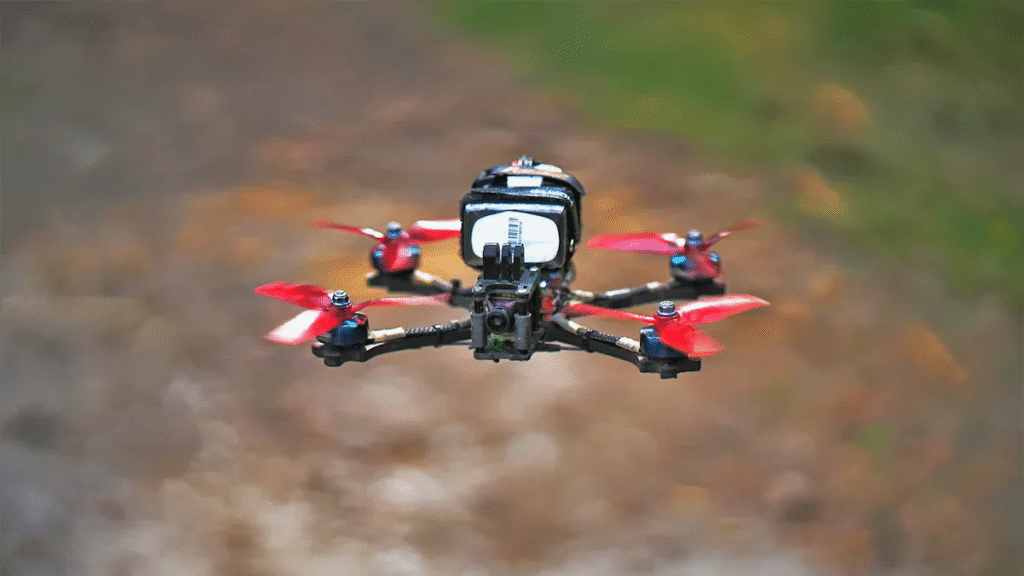Brushless motors deliver higher efficiency, faster speeds, and a longer lifespan, making them the preferred choice for most drone motor applications. You might choose a brushed motor for its lower cost and straightforward design, especially if you are a beginner. Retek Motion supplies both options and can help you decide.
Key Takeaways
- Brushless motors offer better efficiency, longer lifespan, and higher performance, making them ideal for serious drone users and professionals.
- Brushed motors cost less and are simpler, making them a good choice for beginners or budget-friendly drones that need basic use.
- Choose your motor based on your drone’s purpose, budget, and maintenance preferences to get the best balance of cost, performance, and durability.
Drone Motor Comparison

Key Differences
You will notice several important differences between brushed and brushless drone motors. The table below summarizes the main features that set them apart:
| Feature | Brushed Motors | Brushless Motors |
|---|---|---|
| Efficiency | Lower, more heat loss | Higher, less heat loss |
| Lifespan (hours) | 2,000 to 5,000 | Up to 10,000 |
| Noise | Louder due to friction | Quieter, smoother operation |
| Maintenance | Frequent brush replacements | Minimal, almost maintenance-free |
| Cost | Lower upfront | Higher upfront |
| Performance | Basic, suitable for simple drones | Superior, ideal for high-performance use |
You can see that brushless motors excel in efficiency, lifespan, and performance, while brushed motors offer simplicity and lower initial cost.
Performance and Efficiency
When you compare performance, brushless motors stand out. They use electronic commutation, which means they operate without physical brushes. This design reduces friction and heat, allowing the motor to spin faster and more efficiently. Technical analysis shows that brushless motors generate less heat and maintain higher efficiency, especially during demanding flights. You benefit from longer flight times and more consistent power output.
Brushed motors, on the other hand, rely on mechanical brushes that create friction and heat. This friction not only lowers efficiency but also limits the speed and power of the drone motor. Over time, heat buildup further reduces performance. If you want a drone motor that delivers reliable speed and efficiency, brushless technology offers a clear advantage.
Cost and Maintenance
You will find that brushed motors cost less upfront. Their simple design makes them affordable and easy to replace. However, this simplicity comes with a trade-off. Brushed motors require frequent maintenance because the brushes and commutator wear down quickly. You may need to replace brushes regularly, and eventually, the entire motor.
Brushless motors cost more at first, but they save you money and time in the long run. They have fewer parts that wear out, so you rarely need to perform maintenance. Their lifespan can reach up to 10,000 hours under normal conditions, while brushed motors typically last only a fraction of that time. You also avoid frequent downtime and repair costs with brushless motors, making them a better investment for most drone users.
Tip: If you want to minimize maintenance and maximize reliability, choose a brushless drone motor for your next build.
When to Choose Brushed
For Beginners
If you are new to drones, brushed motors offer a practical starting point. Their straightforward design makes them easy to understand and operate. You can quickly learn the basics of drone flight without worrying about complex electronics. Many entry-level drones use brushed motors because they keep the overall cost low. This allows you to experiment and practice flying without a significant investment. You will also find replacement parts widely available, which helps you maintain your drone as you learn.
Note: Brushed motors do wear out faster, so you should expect to replace them more often as you gain experience.
For Budget Drones
When you want to keep costs down, brushed motors provide an affordable solution. Manufacturers often use them in toy drones and lightweight models to reduce the price. You can purchase a brushed motor drone for a fraction of the cost of a brushless model. This makes them ideal for casual users or anyone who wants to try drone flying without a large financial commitment.
- Brushed motors cost less upfront.
- Replacement parts are inexpensive.
- Ideal for short-term or occasional use.
For Simple Use
If you need a drone for basic tasks, such as indoor flying or simple photography, brushed motors can meet your needs. Their uncomplicated design means fewer things can go wrong. You can focus on enjoying your drone rather than spending time on technical maintenance. However, you should remember that brushed motors require more frequent upkeep and have a shorter operational life compared to brushless options.
Tip: Choose brushed motors if you value simplicity and low cost over long-term durability and high performance.
When to Choose Brushless

For Performance
If you want top-tier performance from your drone, brushless motors stand out as the best choice. These motors deliver high efficiency and an excellent power-to-weight ratio, which means your drone can fly faster and carry heavier payloads with ease. You benefit from high torque output, allowing your drone to lift more weight and accelerate quickly. Brushless motors also maintain low energy consumption and reduce the risk of overheating, even during long flights. This combination supports sustained high performance and reliability.
- High efficiency and superior power-to-weight ratio boost speed and payload.
- High torque output enables lifting heavier loads.
- Low energy consumption and reduced overheating risk during extended use.
- Consistent, reliable operation with minimal maintenance.
For Longevity
Brushless motors offer a much longer operational lifespan compared to brushed motors. You can expect them to last up to ten years or more under ideal conditions. The absence of brushes means less friction and wear, so you spend less time on repairs and replacements. Proper care, such as regular cleaning and avoiding water exposure, helps maximize their lifespan. This durability makes brushless motors a smart investment if you want your drone to last.
For Professionals
Professionals demand motors that deliver consistent results and withstand heavy use. Brushless motors meet these needs with features like high KV ratings for speed, large stator sizes for torque, and lightweight designs for agility. The table below highlights the most important features professionals look for in brushless drone motors:
| Feature | Importance |
|---|---|
| KV Rating | Determines speed or torque, depending on your drone’s purpose. |
| Motor Size | Larger stators provide more power and torque. |
| Weight & Efficiency | Lightweight, efficient motors extend flight time. |
| RPM & Torque | High RPM for speed, high torque for lifting. |
| Power Output | Indicates thrust capability. |
| Durability & Reliability | Essential for long-term, consistent performance. |
| Smooth Operation | Reduces vibration for stable photography and videography. |
Retek Motion recommends brushless motors for most users who value reliability, performance, and long-term value in their drones.
Choosing the Right Drone Motor
Use Cases
Selecting the right drone motor depends on how you plan to use your drone. Different users have unique needs. The table below helps you match your requirements to the best motor type:
| User Type | Motor KV Range | Thrust-to-Weight Ratio | Motor Size & Weight | Key Preferences |
|---|---|---|---|---|
| Hobbyist | 1000-1600KV | 3:1 to 4:1 | 35-50g | Stability, efficiency, longer flight times |
| Professional | 1000-1600KV | 3:1 to 4:1 | 35-50g | Payload support, smooth flight, reliability |
| Racing | 2200-3500KV | Around 5:1 | 25-35g | Fast response, high thrust, lightweight motors |
| Beginner | 1000-1600KV | 3:1 to 4:1 | 35-50g | Simplicity, low cost, easy maintenance |
You should choose a motor that matches your drone’s size, weight, and purpose. Racing drones need high KV motors for speed. Hobbyists and professionals benefit from stable, efficient motors for longer flights.
Budget vs Value
When you compare brushed and brushless motors, you must consider both initial cost and long-term value. Brushed motors cost less at first, but they wear out quickly and need frequent maintenance. Brushless motors cost more upfront, but they last longer and require less upkeep. Over time, brushless motors save you money because they run more efficiently and need fewer replacements. You also get quieter operation and better control, which improves your flying experience.
- Brushless motors offer better long-term value for most users.
- Brushed motors suit short-term or budget-focused projects.
Retek Motion Tips
Tip: Always match your motor’s power and thrust to your drone’s payload and flight needs. Aim for a thrust-to-weight ratio of at least 2:1 for stable flight.
- Select the right KV rating and propeller size to maximize flight time.
- Ensure your motors have proper cooling for long flights or hot weather.
- Tune your Electronic Speed Controllers (ESCs) for the best performance.
- Choose brushless motors for efficiency, durability, and reliability.
- Trust reputable brands like Retek Motion for quality, support, and warranty.
You can contact Retek Motion for expert advice on selecting the best drone motor for your application.
You will find that brushless motors dominate the drone motor market because they offer efficiency, durability, and longer lifespan. Brushed motors remain a smart choice for beginners or budget-friendly drones. Consider your needs, drone type, and budget. Reach out to Retek Motion for expert guidance on the best drone motor for your application.
- Brushless motors lead in commercial and high-performance drones.
- Brushed motors stay relevant for entry-level and educational uses.
Choose brushless for performance and longevity. Choose brushed for simplicity and low cost.




